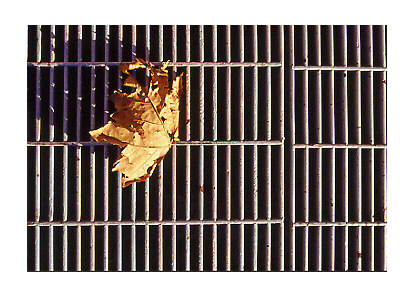 In spite of everything,
In spite of everything,I still believe that people
are really good at heart
Anne Frank is routinely reduced to a cliche of sentiment. The arc of the story fits cleanly into the Hallmark Tragic Heroes mold: an optimistic, bright-eyed young girl, maintaining her spirit even in the midst of hardship. So, all of us who endure hardship are told to look on the bright side, enjoy our psychological opiates, and keep a smile on our face. Come what may.
But Anne Frank was a much more complicated, thoughtful person than the simplified image suggests. She was not an emotional ostrich, sticking her head in the sand of happy thoughts while the world crumbled and burned around her. She was, as expressed in her diary if not the various film adaptations of it, keenly aware of injustice, paradox, pragmatism, sexuality, sentimentalism, tragedy, irony -- the whole range of human complexity. Perhaps her best-known aphorism, which I have chosen as my title here, is actually only the second half of a more complicated sentence: "I keep my ideals, because in spite of everything I still believe that people are really good at heart." She keeps her ideals -- but she knows that the world gives good cause to abandon them.
I have no way of knowing whether Anne Frank meant what I mean by saying that people are good at heart. But it certainly startled me to realize that this simple statement is the foundation of my meditation practice, and the way in which I think spirituality is meant to be lived. It also bears, I think, on how I understand difficult times, such as those our country is now entering. So here goes.
Fundamentally, there is a great divide between religion, spirituality, and contemplation. I dealt with this issue in a previous Zeek essay, "Am I Religious?" and so will only summarize the point briefly here. Essentially, I see spirituality as being about cultivating certain mind (or heart-, or soul-) states, for the purpose of transforming the self or having an experience of ultimate reality. It includes practices like dancing, ecstatic prayer, some kinds of meditation, ritual, being with loved ones, and producing art. It gives color, shape, and flavor to ordinary experience.
Religion, in contrast, consists of movements toward and from spirituality. Toward spirit, in the sense of prescribing attitudes and practices which tend to cultivate good spiritual states. From spirit, in the sense of prescribing ethics and other rules which may or may not cultivate a spiritual state, but which order the rest of life in according to its ideals. In both cases, religion involves itself with forms -- these candles, this holy book -- and, as we know very well, can degenerate into fundamentalism, which is a valuing of the form more than the purpose for which the form exists.
Contemplation seems like spirituality, but is actually critically different, in a way that relates directly to whether people are "good at heart" or not. Both spirituality and contemplation are concerned with self-transformation and having some experience of ultimate reality, whatever that turns out to be. But contemplation does so not by cultivating a particular mind-state, but by allowing the mind to quiet down enough so that we can see any mind-state in a clear way. Thus, where spirituality naturally prefers mind-states like ecstasy and lovingkindness to mind-states like boredom and doubt, contemplation does not. Of course, it's more pleasant to be in a state of bliss, but, as one of my teachers said during a recent retreat, "It's not what's going on that matters -- it's how you relate to it."
 So, if anger arises, note anger... If delight arises, note delight... Of course, we tend to prefer pleasant mind-states, but unlike "spirituality," the contemplative does not make the cultivation of them the primary object. Instead, contemplative practice is largely about cultivating an equanimous space large enough to accommodate even the most difficult of emotions and circumstances. Equanimity does not mean not feeling the emotion -- on my retreat, when I felt anger, I really felt anger. It means relating to the emotion in a way of non-judgment: just allow the anger, or the joy, to exist. Don't hold onto it, or push it away, or wish it would stop, or wish it would never stop. Don't take action in order to get it to stop. Just check it out, try not to judge it (while at the same time not acting on it, since acting is a form of aversion to the feeling itself) be with it, watch it arise and pass. To quote that same teacher again, the opposite of equanimity is not feeling. It's clinging.
So, if anger arises, note anger... If delight arises, note delight... Of course, we tend to prefer pleasant mind-states, but unlike "spirituality," the contemplative does not make the cultivation of them the primary object. Instead, contemplative practice is largely about cultivating an equanimous space large enough to accommodate even the most difficult of emotions and circumstances. Equanimity does not mean not feeling the emotion -- on my retreat, when I felt anger, I really felt anger. It means relating to the emotion in a way of non-judgment: just allow the anger, or the joy, to exist. Don't hold onto it, or push it away, or wish it would stop, or wish it would never stop. Don't take action in order to get it to stop. Just check it out, try not to judge it (while at the same time not acting on it, since acting is a form of aversion to the feeling itself) be with it, watch it arise and pass. To quote that same teacher again, the opposite of equanimity is not feeling. It's clinging.
The fact is, I cannot control all the changing conditions of my life, and, chances are, neither can you. So, it's helpful to remember that. Of course, we can and should change some conditions -- especially those which cause suffering to others or to ourselves. Social justice, environmental justice, doing justice to our own needs -- these all remain. But it's helpful to remember that changing the conditions is not what will really bring about lasting happiness, which can only come from how I relate to the transitory conditions of my life. Trying to manage those conditions, or to maintain order, or to only experience happy thoughts -- that is likely to make matters worse.



In spite of everything, I still believe that people are really good at heart
Jay Michaelson
Whatever it Takes
Aaron Hamburger
The Merchant of Venice and the New Ruling Class
Karin Roffman
James Lee Byars & the number Ten
Abi Cohen
Two Incidents at the Café Kamienica
Gordon Haber
Jacob said to an angel, Tell me your Name
Abraham Mezrich
Archive
Our 610 Back Pages
The I-Thou Circus
February 10, 2005
Zeek in Print
Fall/Winter 2004 issue now on sale
About Zeek
Mailing List
Contact Us
Subscribe
Tech Support
Links
From previous issues:
More than This
Dan Friedman
Sex and the Golem
Joshua Axelrad
belly of the beast
Cullen Goldblatt